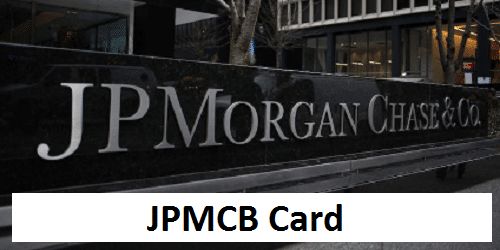Common Fees Associated With Credit Cards and How to Avoid Them? Credit cards can be beneficial, but they often come with many fees that can add up to a lot of money if you miss a payment, go over your limit, or do something else that isn’t a normal purchase.
When you apply for a credit card, you must agree to any terms and conditions. If accepted, you’ll get a long cardholder agreement in the mail. These papers list all the fees you might have to pay using your credit card.
Knowing the different fees, you might have to pay to avoid them or pay as little as possible is important.
Common Fees Associated With Credit Cards and How to Avoid Them
Below, we explain the most common fees associated with credit cards and how to avoid them, which could save you hundreds of dollars.
1. Annual Fee
Many credit cards charge a fee every year to have the card. Most annual fees range from $95 to more than $500. Most cards charge the same fee every year, but some may waive the fee the first year you have the card.
How to avoid yearly charges:
If you don’t want to pay a credit card fee, you have to choose one with no annual fee. People with great credit who want to earn cash back should get the Citi® Double Cash Card. If you have fair or average credit, you could also get the Capital One QuicksilverOne Cash Rewards Credit Card.
And if you already have a card with an annual fee, you should ask for a retention offer or switch to a card with a lower or no annual fee.
2. Interest charges
You have to pay interest if you don’t pay off your balance monthly. Your annual percentage rate is the number on your cardholder agreement that tells you how much interest you will be charged (APR).
Most cards have APRs that change with the prime rate, but some cards have APRs that don’t change when the prime rate does. But since your APR changes from billing cycle to billing cycle, you can check your online account or your most recent bill to find out what APR you are being charged each time you get a bill.
Remember that some things, like getting a cash advance, don’t count as part of the grace period. In this case, you would start to get interested from the day you took the money out of the account.
How to avoid interest charges
The easiest way to avoid paying interest is to pay off your bill in full every month. If you can’t pay your bill in full, cut back on your spending or consider getting a card with 0% APR for up to 21 months.
Check out the Capital One QuicksilverOne Cash Rewards Credit Card if you have fair or average credit. You might want to look into the U.S. Bank Visa® Platinum Card if you have good or excellent credit.
Remember that 0% APR cards only stop interest for a short time. You still have to make minimum payments and pay off the balance before the introductory period ends if you want to avoid paying any interest.
3. Late payment fee
If you don’t pay your credit card bill on time, you’ll have to pay a fee of up to $29 the first time and up to $40 each time after that for the next six billing cycles.
How to avoid paying fees for being late:
You can get a credit card with no late fees, like the Petal® 2 “Cash Back, No Fees” Visa® Credit Card if you have no credit history or the Citi Simplicity® Card if you have good to excellent credit.
You should always make at least the minimum payment by the due date. This lets you have a good history of making payments, which is the most important part of your credit score. You can set up your minimum payment to be paid automatically so that you can make all payments.
4. Fee for foreign transactions
When you use your card to buy things outside the U.S., you may have to pay an extra fee each time. This fee is about 3% per transaction.
How to avoid paying fees for foreign transactions:
If you have average credit, consider looking into credit cards like the Capital One Platinum Credit Card that don’t charge fees when you use it abroad.
5. Balance Transfer Fee
When you move debt from one credit card to another, you usually have to pay a fee of 3% to 5% per transfer, with a minimum fee of $5 or $10.
How to avoid paying fees for balance transfers:
Even though you might save more money during the interest-free period than the balance transfer fee, you can look into cards that don’t charge balance transfer fees. Most of the time, you need good to great credit to get these cards.
6. Cash advance Fee
Cash advances seem easy to get money quickly, but they come with high fees. Card companies usually charge a 3% or 5% fee for each cash advance, which can add up if you take out a lot of money.
How to avoid fees for cash advances:
Instead of getting a cash advance, you could borrow money from family or friends or get a personal loan (which usually offers better terms).
7. Over-the-limit Fee
The card company may charge you a fee if you spend more than your credit limit. However, the fee can be the amount you spent over your limit. The CARD Act of 2009 says that you have to choose to pay this fee, which is different from other fees. Usually, when you try to spend more than your limit, your creditor will only let you. However, you can pay a fee of up to $35 to have these transactions go through. If you don’t sign up, your card issuer will turn down any purchases over your limit that you try to make.
How to avoid over-the-limit fees:
Don’t agree to over-the-limit fees because they offer little value. You should only spend up to your credit limit and use up to 10% of your credit. You can also set alerts to know when you’re getting close to your credit limit. This makes it easy to track how much you can charge to your card.
8. Fee for a returned payment
If you set up a payment for your credit card bill but need more money in your bank account, your payment may be returned. Your card issuer may charge you a returned payment fee, usually up to $40.
For example, if you schedule a bill payment for $750 but only have $500 in your checking account, your card issuer could add a $40 fee to your bill.
How to avoid paying fees for returned payments:
Before you schedule any payments, ensure you have enough money in your bank account.
9. Card replacement fee
You’ll have to pay a fee if you want a new physical credit card. As a courtesy, many companies will give you one new card.
A card replacement fee can be anywhere from $5 to $15; if you need it quickly, you may have to pay extra.
How to avoid having to pay for a new card:
Call your credit card company and tell them you lost your card. Politely ask if they can send you a new one for free. Your credit card company wants you to keep using your card, so if this is your first time getting a replacement, they may be willing to waive the fee.
How about the interest in the fees?
It can be hard to find out if you’ll be charged interest on your fees because it’s different from what credit card companies make clear in their agreements. The best way to find out is to carefully read your agreement, ask the issuer any questions you have, and call your credit card company to ask what fees are “interest-bearing fees.”
Where to look at fees associated with credit cards?
On your credit card statement, fees are usually easy to see, but there are a few exceptions, like the ones mentioned above about foreign exchange fees. They should also be written down clearly in a section of your credit card agreement called a “Disclosure Statement.” If you need more clarification about fees, the best thing to do is always call your provider. If you see charges or fees and you need help understanding, you can call your credit card company to dispute them.
Keep In Mind That Fees Associated With Credit Cards Are How Credit Card Companies Make Money.
Some rules go along with having and using a credit card. If you want to get a new credit card, consider these nine common fees and consider them when deciding if a deal is right for you.
As long as you don’t abuse them, credit cards are useful. Their travel rewards, access to airport lounges, 0% balance transfers, and other perks can also be very helpful. It would help if you were smart about your money to get the most out of your credit cards and avoid paying extra fees.
Bottom Line – Fees Associated With Credit Cards
Credit cards have a lot of fees that may not seem like much at first but can add up over time. It’s a good idea to learn about the fees we’ve talked about above and what you can do to avoid paying them. You can keep fees to a minimum by paying on time, ensuring you have enough money in your bank account, and staying within your credit limit.






